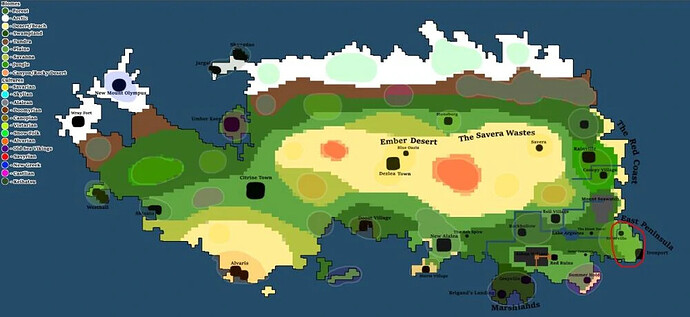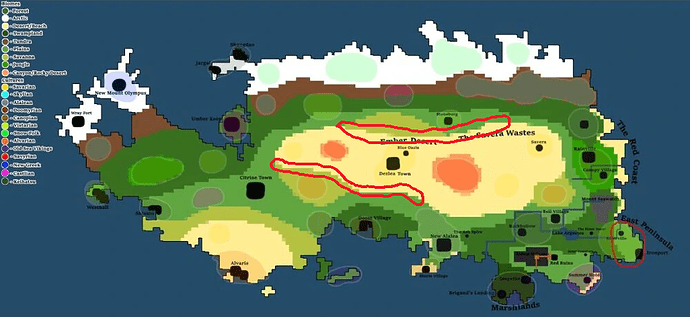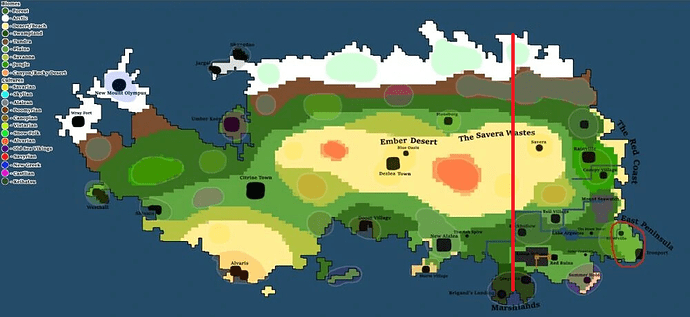
Hello
So
Symbiote moment

Jesus, that’s a lot of stuff.
Didn’t even know I could write that much in a few hours.
I guess in this case I already had a vague idea before I started writing and developing them, so it doesn’t even matter.
I’m probably not done yet, just gonna think on it some more.
China
Kind of bored of this now, interested in the Aristotelian elements. Gonna base a magic system off that.
Idea #2
STATUS: Inomplete [?]
STARTING DATE: 2021-06-01
FINISHING DATE: 2021-06-06 (got bored, it’s kind of like any other magic system except it doesn’t give any physical boosts)
Having read and re-read the Wikipedia article on Aristotelian elements (yeah ik, just the wiki idrc), I feel as though I have a good enough understanding (READ: basic understanding) on the subject from which my ideas might stem. I don’t plan on using the ideas on the physical properties of each element, and was quite unevenly fascinated with the concept of Aether, which seems to be a sort of element of the gaps, a default explanation for the inexplicable.
Taking inspiration from the numerous connections made with the motion or nature of the heavenly bodies and aether, I decided to make this element the embodiment of the sky itself - that great firmament that engulfs the earth entire and whose depth cannot be comprehended. I renamed it lift, which seemed fitting. That’s also subject to change.
Lift
Lift is thought to be the explanation for most heavenly phenomena. The general belief of the world where this power exists is that the heavens are composed of all four elements: fire (the sun), water (the clouds), wind (the firmament itself), and earth (the stars). Therefore, lift should be able to convert itself into any of these elements, though this is a one way process as there is no known way to convert an impure form of matter back to lift.
Lift is able to add itself to another impure form of matter in order to enhance its properties. This can be used for many things - for making a sword sharper, making a torch burn brighter, etc. Lift is seen as the embodiment of perfection and thus perpetuity. Imbuing objects with lift allows them to attain a small measure of this perfection.
Other Information
Of the four elements, earth is the hardest to convert to, and fire is the easiest. Something to do with their thickness. This heavily limits what is possible with the earth element, and is why the most common spells by far are simple enhancement spells and fire/freezing spells.
In this universe, fire magic refers both to the process of gaining and losing heat. They are one and the same.
The process of using lift involves commanding it to act with your soul (or “voice”). The shape that your soul takes while commanding the lift to act determines the spell used. There are multiple criteria used to judge the effectiveness of a magic user in this regard:
-
Volume
The volume that the individual can amass. -
Steadiness
The amount of time the individual can maintain control over the amassed lift. -
Malleability
The ability of the user to change the shape of their soul.
Because the lift is not an earthly element, it cannot be perceived by anyone except those who can use it. Moreover, it can not directly harm anyone, and can only cause harm by being transformed into another element or used to boost an already existing physical item. Since lift is not physical, it can’t be used to directly defend anyone, either.
This means that most fights are about landing a solid hit on the opponent, as most professional spells can kill a human being easily.
Now I’m interested in making mythologies for fictional cultures/universes. The rule I’m setting for myself is to not go too far in the Proto-Indo-European mythology rabbit hole by having deities basically be carbon copies of Greek gods, for instance.
In the first place, what even is a god? Different religions probably think of their deities in different ways, and the ways in which deities are thought of can evolve over time. Gods can rise and fall in significance and popularity, and certain concepts can be emphasized and de-emphasized as time goes on. In the natural ever-flowing marketplace of religious ideas and motifs, change is not only expected but mandatory.
I think supernatural entities are central to religions, but they don’t really need to think of divine beings in the same way more popular western religions do. I was reading the Rogue Lineage / Tales from the Valley lore and it’s pretty interesting and cool, but, perhaps most importantly, it seems unique and novel, which just amplifies the mystery aspect of the world. If only Rogue Lineage had placed more emphasis on that…
Yeah, we get to meet Ya’alda appears, but that’s about it I think.
Having said this, it shouldn’t be a problem if I start with a mythology eerily similar to Greek or Jewish or Irish or Germanic mythology as long as I make it mine, whatever that’s supposed to mean.
There is a problem, though. Where are the names going to come from? I need to create something similar to a language and a culture first before doing any of this, or I won’t be satisfied. If I ever perceive that it is too daunting a task for me to partake in, I’ll stop and find a workaround, but I’ll try it.
I won’t try and make an overly complex language, however weirdly worded that is. It won’t have the daunting verbal inflections of Swahili, Georgian or Navajo, nor will it have the numerous cases of Finnish or that other language I keep forgetting, since I need this to be a fairly simple one for me and the average reader to understand and utilize.
Unfortunately, since the average user is neither East Asian, Native American nor African, that means no tones, even though I think that’s a damn shame. It’s whatever though.
This doesn’t mean it will be as analytic as Mandarin or even English. I still plan to add some weird things there to make it recognizable. You know how most Latin words in fiction are discernible by the -us endings? Something like that, but in specific cases.
In any case, I should think about the culture first, since religion is definitely shaped heavily by culture, and language is too. I don’t think the reverse happens with such frequency though.
Next posts will be basically me thinking about this, the people and the mythology that I want to make. Should take a couple weeks, but I can sometimes blitz through these things so who knows 
Eventually
Please stopped thinking
my mans wrote an essay that’s probably bigger than the ones i write in school
you’re not allowed to think in the forums
After a semi-long hiatus, I’ve decided to make my culture based in a hypothetical universe of AA, with the culture idea I presented in my recent and only 1-year necrobump:
In that post, I already created a universe, habitat, population, and even a sample word to build the language up from, though I could have made the word an exonym.
This kind of fucks with the general “creating a religion” thing that I was doing initially, but I am of the opinion that even though the gods existed once, people can still decide not to believe in them. Their religions would probably be derivatives of the original though.
Just look to the original Jewish religion and its evolution from being polytheistic to monotheistic (if you want to know, look it up). It’s very possible depending on changing understandings and relationships with the gods in the ages.
Alternatively, I could have the new religion be a derivative of a cult or tiny sect, like Christianity. Really unlikely unless someone who practiced said derivative was placed in a position of power, but it’s fine.
Nomadic cultures seem interesting, though I find that my lack of knowledge in the field might be somewhat problematic, and so I’ll dedicate a good amount of time just reading and absorbing information on life as a nomad. I want this to be as thorough as I can realistically make it.
The culture’s general lack of good magic genes probably contributes to their lack of belief in the original gods, since I imagine the history of the universe is something that mages in magic schools (which probably exist for a multitude of reasons) are extensively taught. Think of the relationship between this culture and schools as that between an american Christian and a science class, except most of their children don’t go to school.
yaaldas name sounds like your elder
Since nomadic pastoralism is commonly practiced in regions in little arable land (go figure), these peoples will have to live in a generally infertile land mass. Most nomadic pastoralists are found in central Asia and the Sahel.
Those in Central Asia mostly lived in the steppes, a steppe being an area categorized by grassland plains without trees except near water. They usually have drastic extremities in weather during the seasons and the day-night cycle and a semi-arid climate (not quite a desert, but very little precipitation).
The Sahel is the area of transition between the Sahara and the savanna in Sudan. It’s mainly flat, and contains semi-arid grasslands, savannas, steppes, and thorn shrublands. It has a semi-arid climate, just less severe than the Sahara. It also receives very little precipitation.
I know Magius is the funny mystical island haha, but depending on its scale, such a culture could realistically emerge. If they were to do so, it’d probably be in the regions between desert and savanna, where the biome I described above would be.
I’m thinking these regions as possibilities:
I still kind of need to know how big Magius is though. I reckon that this would really only work if Magius was big enough that just moving to better land would be unreasonable. I could always make it so that they were driven out towards the steppes by other groups, but that’s a last resort, since I’d then have to expatiate on THAT as well.
Assuming the continent is as wide as Russia which is about 5600 miles (or 9000 km for the cool kids), and assuming that the distance given by those in my question thread of 12km across is true, then I can put that to scale and measure the width of Magius as well.
From what I can see in the map, the maximum vertical distance in Magius is a straight line directly intersecting the bight at the marshlands’ coastline, which came out as 371 pixels in height as opposed to the 777 pixels of the maximum horizontal distance.
Here’s the image of where that maximum height is:
That makes the ratio of widthMAX and heightMAX about 777:371. If Magius was about 9000 kilometers across, it’d have to be ≈ 4300km in height.
That seems practical enough for what I’m doing. It also helps that now I’ll be able to deal in exact distances.
Ok, back to the initial topic at hand: Religion.
In the Arcane Universe, characters from Greek Mythology are (were?) real, and have (had?) real effects on the world. Real, tangible effects. Although I don’t think this is quite enough for no religious derivatives to ever pop up ever, that is pretty significant.
Perhaps not so since the Age of Magic is gradually coming to an end the way I see it. Natural mages are becoming rarer and rarer, although there are some cultures with a disproportionately high amount of mages.
One of the ways that I have seen Religions evolve is through something I call a hierarchy shift, in the sense that the hierarchy of importance of the gods is shifted, and some gods’ significance either becomes downplayed or overplayed. Basically, people start worshiping a specific god more than the other gods, or place more importance on it. This can be as extreme as wiping out the other gods from the status of “god” in the first place.
As outsiders looking in, it might be weird to imagine a world where Zeus isn’t head of the pantheon, but we don’t worship them (for the most part). Zeus in the western world is famous not because he is worshiped but because he is a reoccurring part of western media. It’s a bit different from worshiping the god. A god’s importance can become inflated if the culture sees what they offer as more needful, or if a cult gains significance over others.
(More importantly, simply living with the gods having existed doesn’t mean they know the stories of the gods and all that stuff. Those stories would need to be communicated to to the humans. If the stories are not communicated to the humans, then it’s a different ball park)
But which god should I choose? It won’t be Zeus, since that’s overly cliche, talk less of not making a lick of sense. This is going to be another ordeal…
Decided to not even bother with this (funny how that turns out), since it was boring in the first place, or rather, the AU’s setting makes it boring. I’m extremely limited in what I can do here. Let’s just say they worship fucking Helios or something. Doesn’t really matter unless they’re hardcore about it.
On to more interesting matters then.
I’ll start working on their cultural practices, language(s), and the intercultural interaction between them and the other cultures. I should be about half way, but the cultural practices and language bit was probably going to contain most of the difficult work anyway.
Since they probably also speak the common tongue (whatever that is, let’s just say English), I’ll think about working on a pidgin tongue between English and their language. I’m not even remotely interested in any of the cultures that exist in-game since they’re all boring save the Doomyrians, Canopians, and Snow Folk, so I will definitely not even be investing time adjusting and tweaking them for my head-canon Magius.
Trudging along…


